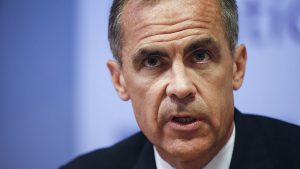More words camouflage lack of progress
 It seems that both sides in the Brexit negotiation are becoming familiar with the bureaucratic notion of prevarication.
It seems that both sides in the Brexit negotiation are becoming familiar with the bureaucratic notion of prevarication.
At the EU Heads of Government summit on Friday, British Prime Minister, Theresa May, told her colleagues that they shouldn’t be concerned about the U.K.’s intention to honour its financial commitments already made. This is about as far as she dare go given the response she is likely to get from members of her Cabinet who are far from certain that any sum should be paid.
In any event, Mrs May’s comments were sufficient to press the EU Council into action and their President Donald Tusk commented on social media that the Eu would would begin preparations to move into the second phase of Brexit talks in December. Agaoan an extremely vague comment and one that can easily be interpreted, a style that has become common in Brussels. Tusk’s comments were sufficient to raise the mood with a number of U.K. newspapers hailing a breakthrough for May and encouraging her to press on for greater concessions as if any have already been made. May also asserted that there was close to being an agreement over the treatment of EU citizens remaining in the U.K. following Brexit. Any such agreement would involve huge concessions which neither side is likely to make at the current time.
Rate hike in the balance
 It has been a long time, if ever, since a rate hike was being promoted so actively by analysts despite the need for such a hike being so shrouded in doubt.
It has been a long time, if ever, since a rate hike was being promoted so actively by analysts despite the need for such a hike being so shrouded in doubt.
Last weeks data releases in the U.K. were pretty much as expected but the combination of high inflation, with its cause firmly rooted in currency weakness contrasts with the lack of growth in wages due to the lack of business investment due to Brexit concerns. Any rate hike is likely to be a “one off” bringing further questions about its necessity. One 25bp rate hike won’t make any difference to the economy and could actually drive sterling lower as traders tend to “buy the rumour and sell the fact”. This could place BoE Governor Mark Carney in an even more difficult position as inflation is unlikely to start to fall any time soon, although a firm date for the start of stage two of Brexit negotiations could be the catalyst for a change in the trend lower.
Versus the common currency the pound is managing to remain below the 0.9000 level as the political events in Austria and Spain are digested. Donald Tusk has said that it the situation in Catalonia is not an issue for the EU.
Error, group does not exist! Check your syntax! (ID: 4)
Dollar rising on fiscal stimulus hopes
 The hopes for a rate hike in the U.S. in December remain very high. The comment by current Fed Chair Janet Yellen that rate hikes are no longer data dependent has provided significant stimulus and a likely more hawkish FOMC going forward will provide further support for the greenback.
The hopes for a rate hike in the U.S. in December remain very high. The comment by current Fed Chair Janet Yellen that rate hikes are no longer data dependent has provided significant stimulus and a likely more hawkish FOMC going forward will provide further support for the greenback.
Recent data releases particularly inflation have hardly been conducive to tighter monetary policy and comments from other FOMC members have raised concerns over the source of higher inflation going forward in the short term.
The election of a far more hawkish Fed will see rates return to normal much quicker as President Trump delivers on his fiscal stimulus package.
The dollar index rose to fresh three month high against the JPY as risk aversion fell following the probable adoption of a new fiscal stimulus package. Senate approval of a budget blueprint on Thursday for the 2018 fiscal year cleared a critical hurdle for Republicans to pursue a tax-cut package without Democratic support.
The dollar index rose to a high of 93.78, still shy of the 94.00 level but very well supported at 93.00.
Reaction from the common currency to Spain withdrawing autonomy from Catalonia has so far been limited as the market awaits a reaction from the breakaway region’s government.
















